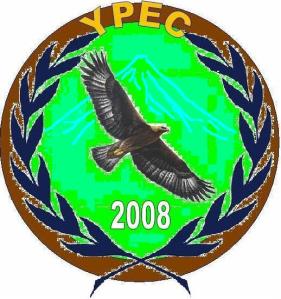G.R. No. 152392 May 26, 2005
Callejo, Sr. Second Division
Facts:
Korean Airlines
(hereafter KAL), through Atty. Mario Aguinaldo (hereafter Atty. Aguinaldo),
filed a Complaint against Expertravel & Tours, Inc. (hereafter ETI) with
the Regional Trial Court (hereafter RTC) of Manila for the collection of sum of
money, among others. The verification and certification against forum shopping
was signed by Atty. Aguinaldo, who indicated therein that he was the resident
agent and legal counsel of KAL and had caused the preparation of the complaint.
ETI filed a
motion to dismiss the complaint on the ground that Atty. Aguinaldo was not
authorized to execute the verification and certificate of non-forum shopping as
required by Section 5, Rule 7 of the Rules of Court.
KAL submitted an
Affidavit, executed by its general manager Suk Kyoo Kim, alleging that the
board of directors conducted a special teleconference, which he and Atty.
Aguinaldo attended. It was also averred that in that same teleconference, the
board of directors approved a resolution authorizing Atty. Aguinaldo to execute
the certificate of non-forum shopping and to file the complaint. Suk Kyoo Kim
also alleged, however, that the corporation had no written copy of the
aforesaid resolution.
Based on the
foregoing Affidavit, the RTC denied the motion to dismiss. ETI filed a motion
for the reconsideration of the Order, contending that it was inappropriate for
the court to take judicial notice of the said teleconference without any prior
hearing. The same having been denied, the matter was elevated to the Court of
Appeals (hereafter CA)
The CA rendered
judgment dismissing the petition, ruling that the verification and certificate
of non-forum shopping executed by Atty. Aguinaldo was sufficient compliance
with the Rules of Court. According to the appellate court, Atty. Aguinaldo had
been duly authorized by the board resolution, and was the resident agent of
KAL. As such, the RTC could not be faulted for taking judicial notice of the
said teleconference of the KAL Board of Directors.
Issue:
Whether
or not teleconferencing may be a matter of judicial notice.
Ruling:
The RTC took
judicial notice that because of the onset of modern technology, persons in one
location may confer with other persons in other places, and, based on the said
premise, concluded that Suk Kyoo Kim and Atty. Aguinaldo had a teleconference
with the respondent’s Board of Directors in South Korea. The CA, likewise, gave
credence to the respondent’s claim that such a teleconference took place, as
contained in the affidavit of Suk Kyoo Kim, as well as Atty. Aguinaldo’s
certification.
Generally
speaking, matters of judicial notice have three material requisites: (1) the
matter must be one of common and general knowledge; (2) it must be well and
authoritatively settled and not doubtful or uncertain; and (3) it must be known
to be within the limits of the jurisdiction of the court. The principal guide
in determining what facts may be assumed to be judicially known is that of
notoriety. Hence, it can be said that judicial notice is limited to facts
evidenced by public records and facts of general notoriety. Moreover, a
judicially noticed fact must be one not subject to a reasonable dispute in that
it is either: (1) generally known within the territorial jurisdiction of the
trial court; or (2) capable of accurate and ready determination by resorting to
sources whose accuracy cannot reasonably be questionable.
Things of
"common knowledge," of which courts take judicial matters coming to
the knowledge of men generally in the course of the ordinary experiences of
life, or they may be matters which are generally accepted by mankind as true
and are capable of ready and unquestioned demonstration. Thus, facts which are
universally known, and which may be found in encyclopedias, dictionaries or
other publications, are judicially noticed, provided, they are of such
universal notoriety and so generally understood that they may be regarded as
forming part of the common knowledge of every person. As the common knowledge
of man ranges far and wide, a wide variety of particular facts have been
judicially noticed as being matters of common knowledge. But a court cannot
take judicial notice of any fact which, in part, is dependent on the existence
or non-existence of a fact of which the court has no constructive knowledge.
In this age of
modern technology, the courts may take judicial notice that business
transactions may be made by individuals through teleconferencing.
Teleconferencing is interactive group communication (three or more people in
two or more locations) through an electronic medium. In general terms,
teleconferencing can bring people together under one roof even though they are
separated by hundreds of miles. This type of group communication may be used in
a number of ways, and have three basic types: (1) video conferencing -
television-like communication augmented with sound; (2) computer conferencing -
printed communication through keyboard terminals, and (3)
audio-conferencing-verbal communication via the telephone with optional
capacity for telewriting or telecopying.
In the
Philippines, teleconferencing and videoconferencing of members of board of
directors of private corporations is a reality, in light of Republic Act No.
8792. The Securities and Exchange Commission issued SEC Memorandum Circular No.
15, on November 30, 2001, providing the guidelines to be complied with related
to such conferences. Thus, the Court agrees with the RTC that persons in the
Philippines may have a teleconference with a group of persons in South Korea
relating to business transactions or corporate governance.













No comments:
Post a Comment